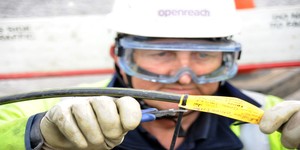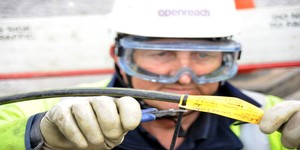
Facebook has officially dropped a plan to build and launch autonomous drones to bring internet connectivity to currently under-served communities, having been working on the project since 2014.
Social media giant Facebook, which makes the bulk of its money by providing advertisers with access to rich targeting data on its users, has a problem common to companies of its size: Its growth has slowed, thanks in no small part to the fact that the majority of people who want to be on Facebook and have the ability to do so are already on Facebook. Like advertising behemoth Google, which has experimented with its own connectivity projects including satellite- and balloon-based wireless connections, Facebook has a solution to the problem: Get people currently disconnected from the internet onto the internet, and from there onto Facebook.
A big part of this effort is Project Aquila, launched back in 2014. Described by the company as a 'high-altitude platform station (HAPS) system,' the UK-led Project Aquila attempted to develop autonomous drones which can fly over a region and provide wireless connectivity to those who do not currently have internet access.
'When we started the Aquila program back in 2014, very few companies were involved in this area — and they were all working independently of one other. In addition, the only spectrum available for these platforms wasn't suitable for broadband due to technical and geographical limitations,' recalls Facebook's Yael Maguire in an analysis post published late last night. 'So we decided to start from scratch and invest in the building blocks needed to make this technology work — most important of all, the aircraft. To increase our chances of success we took on every part of our aircraft's design, development, and testing, work that was led by our team in Bridgwater, U.K. Thanks to their efforts, we were able to demonstrate that an aircraft of this design was viable — with two successful full-scale test flights, including a textbook landing on "Aquila beach."'
Sadly, the project's early successes have led to naught, and the homebrew drone portion of Project Aquila, along with its Bridgwater office, is being officially shut down in favour of partnerships with companies including aircraft specialist Airbus. 'Given these developments, we've decided not to design or build our own aircraft any longer, and to close our facility in Bridgwater,' Maguire explains. 'Going forward, we'll continue to work with partners like Airbus on HAPS connectivity generally, and on the other technologies needed to make this system work, like flight control computers and high-density batteries. On the policy front, we’ll be working on a proposal for 2019 World Radio Conference to get more spectrum for HAPS, and we'll be actively participating in a number of aviation advisory boards and rule-making committees in the US and internationally.'
Maguire has confirmed that Facebook is continuing to investigate 'connectivity for everyone,' including the Terragraph gigabit wireless network for urban areas and its fibre backhaul project in Uganda.

MSI MPG Velox 100R Chassis Review
October 14 2021 | 15:04








Want to comment? Please log in.